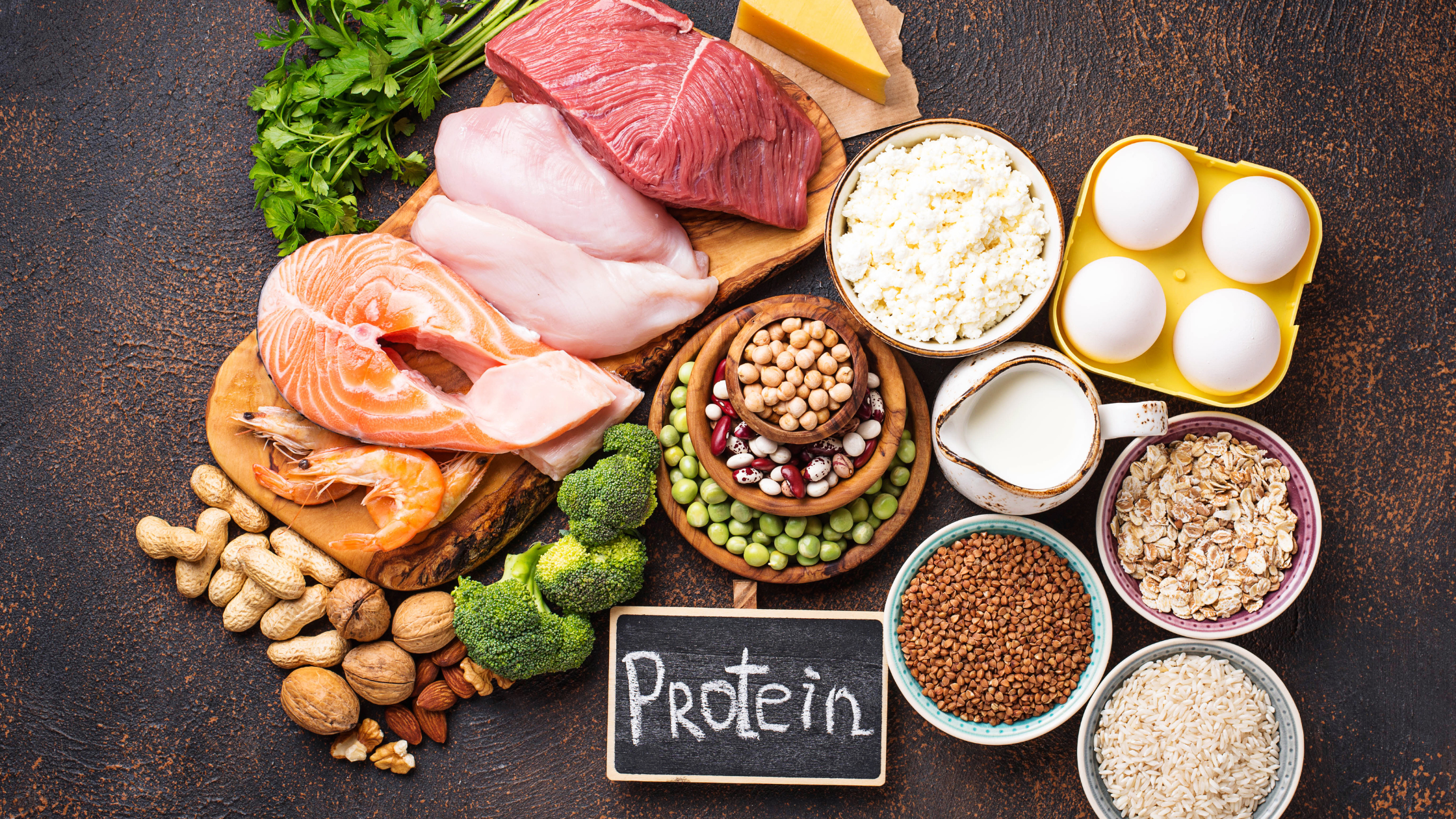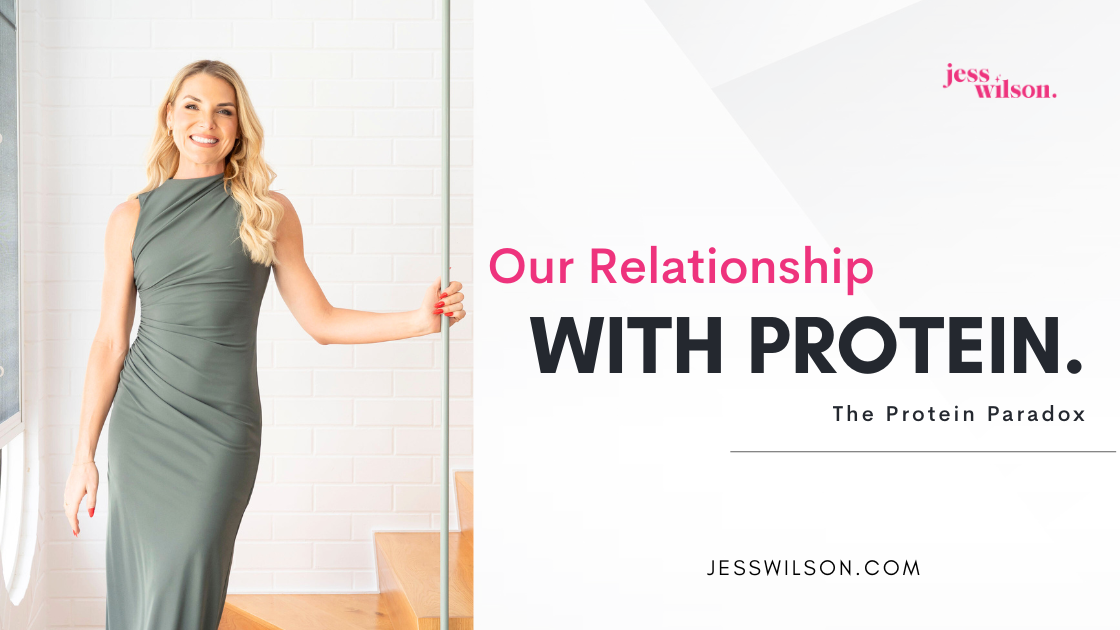Protein has been the hot topic across social media lately. Protein oats, protein bars, protein macros, how to incorporate more protein and so forth…
But as a nutritionist, although I understand protein is really important, I’m seeing a major amount of misinformation around this topic.
We have to remember not everyone is the same, not everyone’s bodies need the same amount of protein, the same intake of calories. Not everyone needs the same diet or the same foods. So, when we have this influx of protein information it can actually be harmful.
Today I thought I would discuss some of the most critical challenges I’ve been witnessing in regard to protein, and in combination, three of my best tips for protein intake.

Let’s get into it!
Over the past few months, I’ve noticed more and more people running into the same patterns:
- Eating more frequently than feels natural or sustainable.
- Feeling bloated or uncomfortable from oversized portions.
- Relying on bars or low-quality powders, just to hit that desired macro target.
This is usually due to something named “The Protein Consumption Paradox”, which is known as the obsessive pursuit of high protein macronutrients at the expense of overall caloric balance. This challenge stems from a fundamental misunderstanding of proteins role in our diet.
It’s not just about consuming large quantities or meals high in protein; it’s about strategic mindful intake that also focuses on nutrition for the body. Hitting a protein goal doesn’t always mean you’re eating well. We need to also take into account, our energy levels, digestion, mood, sleep etc.
How do you feel when you’re eating a certain way?
So now, the bigger question is, “How do I consume protein in a transformational and strategic way?”
The foundation is quality proteins.
Here are my three Transformative Protein Strategies:
1. Prioritising Lean, High-Quality Proteins
Aiming to incorporate 30-50 grams of protein per meal. Consuming lean protein from animal sources. Animal sources usually have a ‘complete protein profile’ which essentially means they’re a clean source of protein that provide all 9 essential amino acids.
2. Develop Intuitive Eating
Listen to your body’s hunger and fullness cues. These signals are regulated by Leptin and Ghrelin hormones, telling us when we need more fuel and when we don’t. They are insight into what our bodies need. It’s so important to not push past and ignore those signals. Trust what your body is telling you.
3. Maximise Protein Content in Existing Meals
Instead of constant snacking or forcing multiple small meals, focus on maximising the protein content for your already existing meals. What I mean by this, is adding things like quinoa, nuts, bone broths, beans, or collagen for the additional protein boosters in a meal. These small additions can transform a 30–35-gram protein meal to a 45-50-gram protein meal. This approach can reduce nutritional stress and simplify your eating strategy.

Let’s not forget, protein is important, it plays a massive role, but it’s not the full picture. The goal shouldn’t be to consume the maximum possible amount, but to find that balanced and sustainable approach that supports your overall health. Nutrition is a personal journey, there’s no ‘one-size-fits-all’. What works for one person might not work for another. It’s about experimenting, self-awareness and commitment to understanding your own body’s needs.
As we all try to figure out the world of protein consumption and what works for us remember; quality is more important than quantity. Listen to and trust your body. Approach nutrition with curiosity and compassion. Your body is an incredible, adaptive system. Treat it with respect and kindness, feed it intelligently and watch how it transforms.
If you’re ready to live the life of your dreams in a body you love, I’m here to help. Reach out – lets chat.




